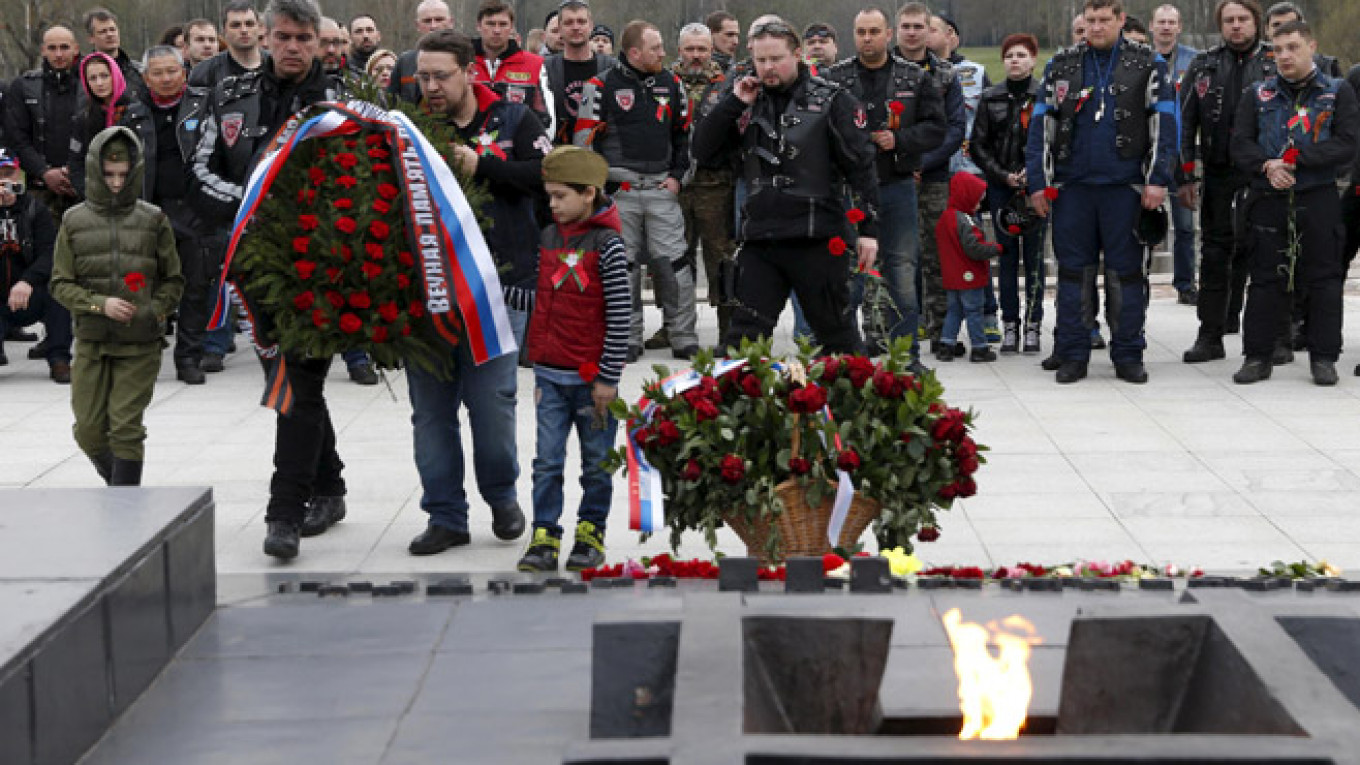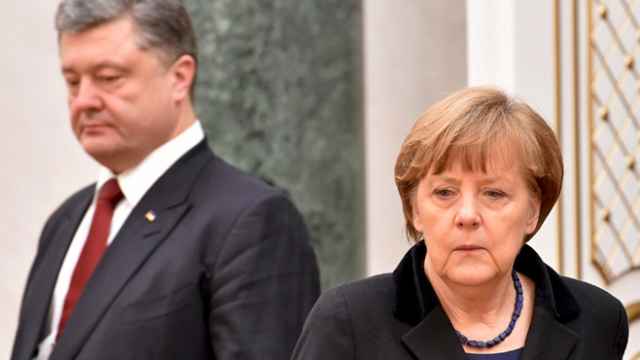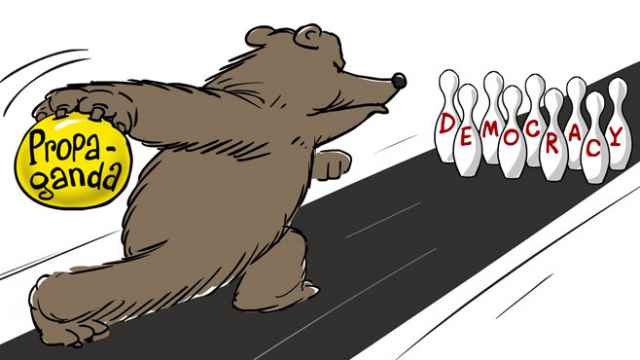With the 70th anniversary of the defeat of Nazi Germany almost upon us and relations between the former Allies at their coldest in a generation, one of the more common refrains in Russian nationalist discourse has been the "ingratitude" of the Europeans and Americans for the Soviet Union's leading role in the victory.
Most recently, that victory has become a prominent rhetorical device in the ongoing war in Ukraine, where Russia constantly juxtaposes the "fascist junta" in Kiev with its own image as a champion against Nazism.
There is no question that the defeat of the Third Reich would have been impossible without the Soviet Union, but, as with all self-congratulatory claims to national exceptionalism, the reality is far more complicated.
The damage done to countries liberated by the Red Army was so great, in both political and human terms, that while Europeans can and should be glad that the Soviet Union triumphed, there are many in Europe who do not feel grateful.
The simple fact that there was no other force capable of dislodging the Nazi armies does not change the somber truth that the liberation was simultaneously a war of expansion by another totalitarian state.
The war's imperial character was apparent from its very beginning, when the Soviet Union invaded and dismembered Poland with its official ally, Nazi Germany.
And like Hitler, Stalin considered terror and genocide to be an essential part of statecraft; his execution of over 20,000 Polish captives in the 1940 Katyn massacre was one of the war's first mass killings of that scale. The entitled, conquering mentality filtered down to the average Red Army soldiers, whose epidemics of rape and plunder in the latter stages of the war became notorious.
Whether or not one agrees with the assessment of Bulat Okudzhava, the legendary Soviet bard and veteran of the war, that the Nazi and Stalinist systems were "identical," Soviet victory marked another kind of defeat for almost all the countries that fell under communist rule.
Europe's eastern half was forced to surrender its sovereignty; whatever political and individual freedoms that had been restored since the liberation were quickly abolished and replaced by the cult of personality and police terror.
Stalin's death in 1953 brought an end to the worst excesses of one-party rule, but Eastern Europe remained very much a colonial possession of the Soviet Union.
Those who today express bafflement over NATO expansion seem to have forgotten that it was motivated by the desire of Eastern Europeans not to repeat their experience of living in the shadow of the Soviet Union.
Lost in the current patriotic fervor is also the question of the cost of the victory for even the Soviet people themselves.
Russia suffered a horrific demographic loss, caused in part by the brutality and incompetence of Stalin and his generals, from which it has never fully recovered.
In the words of Viktor Astafyev, the two-time laureate of the U.S.S.R State Prize for literature, who was wounded three times in battle, neither the Red Army nor the Soviet leadership defeated the Germans, but the people, who "drowned" the invaders in their blood.
The well-documented hopes of the front-line generation for a freer, more humane postwar life were dashed by intensified repressions immediately after the victory.
Popular generals were arrested or exiled, masses of war invalids were expelled from the cities, and the Museum of the Siege of Leningrad was closed, its exhibits destroyed and its curators executed or imprisoned.
The Jews of the Soviet Union and Eastern Europe were only spared from a state-sanctioned anti-Semitic campaign by Stalin's sudden demise, which cut short the infamous Doctors' Plot.
The Soviet Union, even at its worst, was arguably less genocidal, less terroristic, and more capable of accommodation than Nazi Germany; but for most Eastern Europeans, that was a fortunate accident of their liberation, rather than the reason for it.
Their bitterness at having spent almost half a century chained to the rusting hulk of the Soviet Union will not dissipate anytime soon.
Andrew Kornbluth is a doctoral student at the University of California at Berkeley.
A Message from The Moscow Times:
Dear readers,
We are facing unprecedented challenges. Russia's Prosecutor General's Office has designated The Moscow Times as an "undesirable" organization, criminalizing our work and putting our staff at risk of prosecution. This follows our earlier unjust labeling as a "foreign agent."
These actions are direct attempts to silence independent journalism in Russia. The authorities claim our work "discredits the decisions of the Russian leadership." We see things differently: we strive to provide accurate, unbiased reporting on Russia.
We, the journalists of The Moscow Times, refuse to be silenced. But to continue our work, we need your help.
Your support, no matter how small, makes a world of difference. If you can, please support us monthly starting from just $2. It's quick to set up, and every contribution makes a significant impact.
By supporting The Moscow Times, you're defending open, independent journalism in the face of repression. Thank you for standing with us.
Remind me later.






